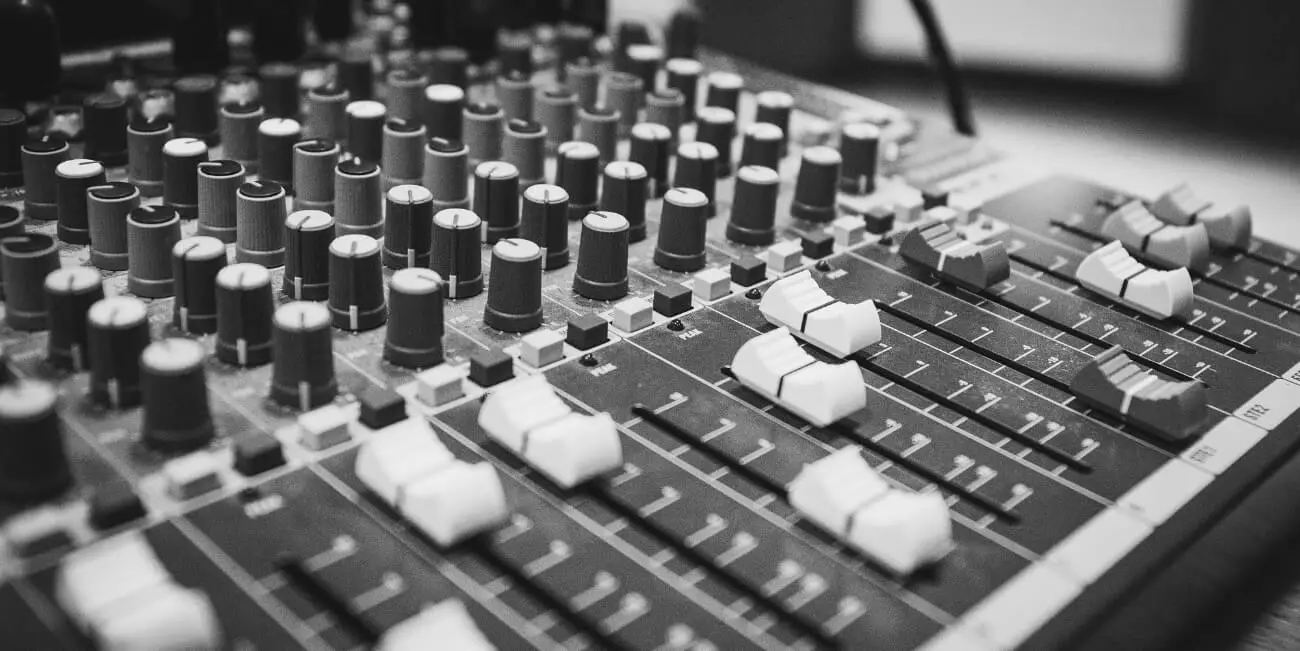
What is Audio Mixing and Mastering?
What are the differences between audio mixing and mastering?
Audio production/engineering is an umbrella term used to cover many aspects of the music creation process. Of these many aspects, audio mixing and mastering are two of the most important. Both are critical to a successful piece of music yet both have specific, individual purposes. Let’s take a look at what these are as well as their differences.
What is audio mixing?
When putting a song together, there are many sounds that have to be combined in a coherent way. Often these sounds include drums, instruments, vocals, sound effects, and more, that all have to share the same three-dimensional box that is your audio spectrum. Audio mixing is the process through which we adjust the volumes, spacing, depth, and overall relativity of sounds in order to get a clear sounding song. Are the vocals loud enough to where we can understand the words clearly? If not, then we need to either turn them up or turn down the sounds that are competing with the vocals. Are the drums overpowering the rest of the music? We can go in with an EQ to turn down certain frequencies that stand out from others. There are plenty of great resources for mixing work, including Fiverr and record labels. If you don’t feel comfortable with your own mixing, I highly suggest having someone professional do it and then you learn from what they did.
Having a high quality mix is important for not only an enjoyable music experience, but many distribution platforms like Distrokid will not allow the upload of low quality music. If you’ve ever heard a song that sounded distorted, muffled or any other form of “low quality”, chances are the mix was not done very well. While mixing can be a science, there is also a creative aspect to mixing. Different genres have different expectations for how the sounds should be presented, and many producers today have developed their own unique style of mixing. Electronic music for example frequently follows the “disco smile” EQ curve, meaning there is more low and high frequencies than there are mids. Singer/songwriter music on the other hand prioritizes vocals and, as a result, instruments often sound quieter.

What is audio mastering?
If audio mixing is the ice cream sundae, mastering is the cherry on top. Mastering seeks out to do one main thing- make the music sound as loud as possible (in commercial standards) without harming the integrity of the mix. If you’ve ever listened to one song and then went to another song that sounded way quieter than the first one, chances are their master was done differently. Electronic music is notorious for being very loud, often compressing the frequencies to the point where you’re being hit with a consistent wall of dynamic-lacking sound. Other genres like Acoustic Rock, R&B, and Country preserve the wide dynamic range of tracks by not over compressing the master, which then results (usually) in a slightly quieter song.
It’s a compromise and ultimately, the choice is up to the artist/engineer. You can hear example of mastered electronic music on the StoryTime website and get in touch if you want us to master a song for you. Our engineers will show you exactly what they did to make it sound good.
Together, the mixing and mastering process creates the polished versions of songs that we hear on all major radio/streaming platforms. Every song needs both and if you’re a music producer, it pays to learn how to them yourself. That said, you should still get professional work done at least a few times and learn how they do it.
If you enjoyed this mod, you might also enjoy this mod about how to make money from your music!
If you found this mod helpful or useful, please share using the social media icons below. Any questions or comments? Let me know on Twitter.

